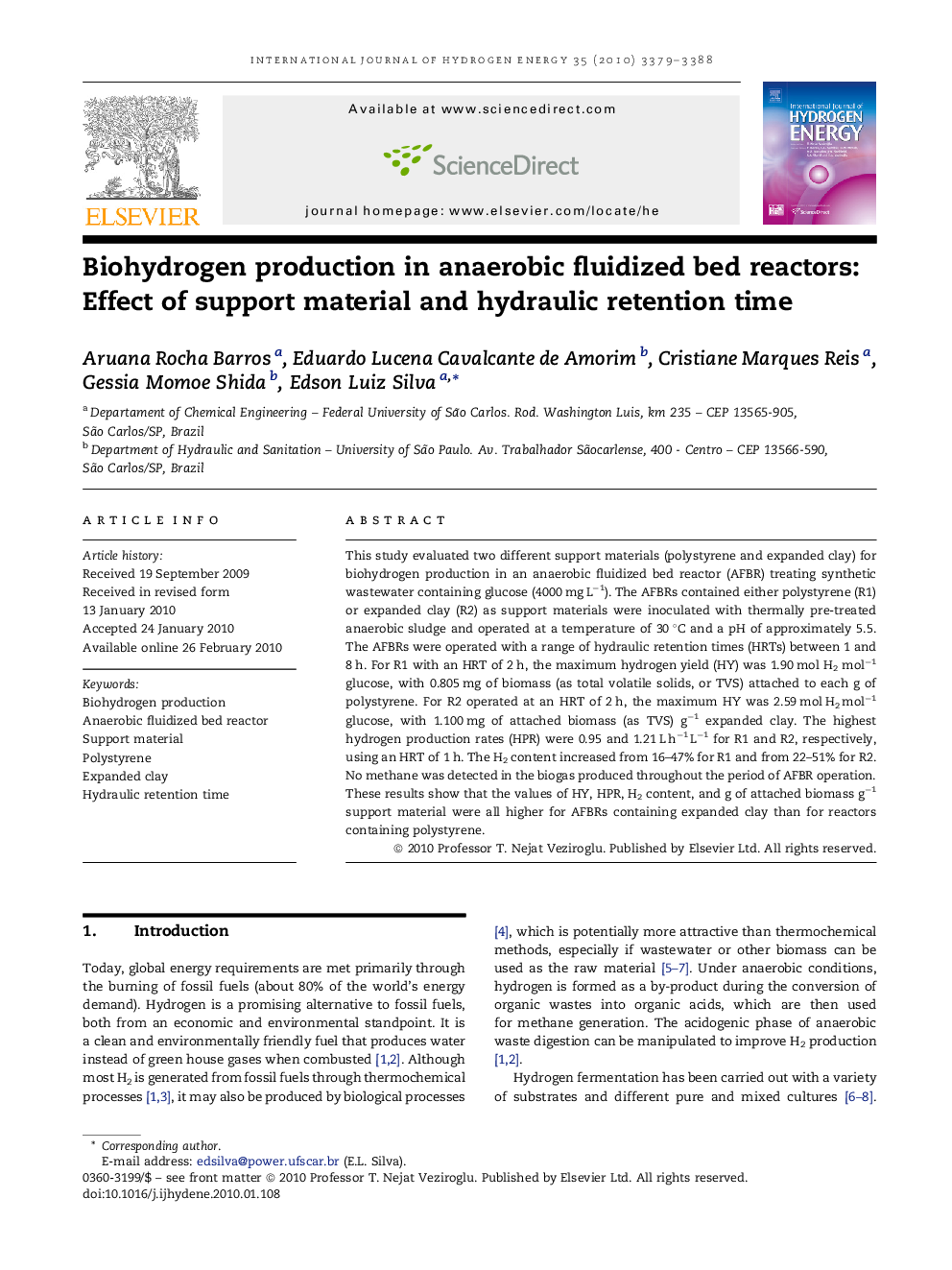| کد مقاله | کد نشریه | سال انتشار | مقاله انگلیسی | نسخه تمام متن |
|---|---|---|---|---|
| 1282892 | 1497609 | 2010 | 10 صفحه PDF | دانلود رایگان |

This study evaluated two different support materials (polystyrene and expanded clay) for biohydrogen production in an anaerobic fluidized bed reactor (AFBR) treating synthetic wastewater containing glucose (4000 mg L−1). The AFBRs contained either polystyrene (R1) or expanded clay (R2) as support materials were inoculated with thermally pre-treated anaerobic sludge and operated at a temperature of 30 °C and a pH of approximately 5.5. The AFBRs were operated with a range of hydraulic retention times (HRTs) between 1 and 8 h. For R1 with an HRT of 2 h, the maximum hydrogen yield (HY) was 1.90 mol H2 mol−1 glucose, with 0.805 mg of biomass (as total volatile solids, or TVS) attached to each g of polystyrene. For R2 operated at an HRT of 2 h, the maximum HY was 2.59 mol H2 mol−1 glucose, with 1.100 mg of attached biomass (as TVS) g−1 expanded clay. The highest hydrogen production rates (HPR) were 0.95 and 1.21 L h−1 L−1 for R1 and R2, respectively, using an HRT of 1 h. The H2 content increased from 16–47% for R1 and from 22–51% for R2. No methane was detected in the biogas produced throughout the period of AFBR operation. These results show that the values of HY, HPR, H2 content, and g of attached biomass g−1 support material were all higher for AFBRs containing expanded clay than for reactors containing polystyrene.
Journal: International Journal of Hydrogen Energy - Volume 35, Issue 8, April 2010, Pages 3379–3388